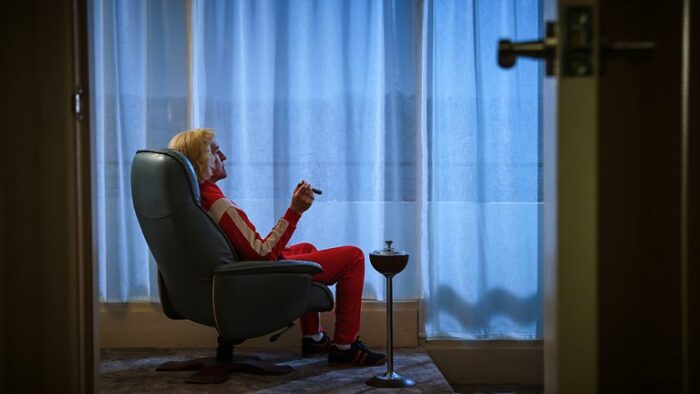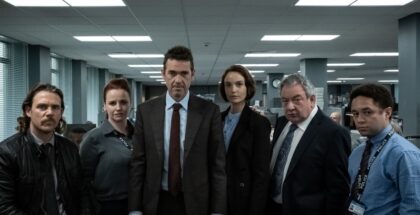True Crime Tuesdays: The Reckoning
Review Overview
Performances
8Sensitivity
8Reckoning
3Helen Archer | On 24, Oct 2023
From its very inception, The Reckoning caused controversy. Some believed that the programme – documenting the life of prolific predator Jimmy Savile, whose victims spanned ages, gender and even mortality – should not even have been made, and the production was beset with problems and delays. But, with the support of some of Savile’s victims, director Sandra Goldbacher and writers Neil McKay and Dan Davies professed to show the way in which Savile was able to carry on ‘in plain sight’ for much of the 84 years he was on this Earth.
This programme won’t answer too many awkward questions about his reign at the BBC, but it will show you his modus operandi – ingratiating himself with the rich and powerful to protect himself against any allegations becoming public knowledge – and it does voice some of his victims’ distress at the way in which he was allowed to continue, even to the point of hosting the last ever Top of the Pops in 2006, his special ‘national treasure’ appearance on Big Brother in the same year, and his extravagant public funeral in 2011, in which his life was celebrated.
Starring Steve Coogan – who captures not just Savile’s mannerisms but his sinister, threatening side to perfection – the four-part series is framed through ongoing interviews with his would-be biographer Dan Davies (Mark Stanley), who meets with him in his penthouse flat in Leeds Roundhay Park. The story of his life plays out in flashbacks, Davies’ frustration growing as Savile obfuscates and intimidates and Davies attempts to get at the truth of the man.
Episodes begin and end with the voices of some of his victims, whose experiences with Savile are dramatised. There are clearly far too many abuses to cover fully, so each one who participates represents a different aspect of his predation – from his early victims, which he procured from the adoring audience of Leeds dancehalls, where he was a DJ, to the paralysed patients of Stoke Mandeville, the hospital he raised money for, while also being allowed to porter the wards, to the children who sat on his knee for Saturday evening broadcasts of Jim’ll Fix It, to those he picked up in either his Rolls Royce or his ‘passion wagon’ from care homes, to children who had been abused by family members who were now assured they were ‘safe’, to bodies in the morgue he took a keen interest in. Indeed, he described the days spent with his own mother’s dead body as “a very happy time”.
But beyond this, the drama also tells the story of Savile’s life, though in a kind of vague, hazy way. His connections to other paedophiles are hinted at, though characters are not clearly defined, the dramatisation of it all leading to some confusion. Some of those he was friends with such as are presented as dupes, such as Charles Hulligan (Mark Lewis Jones) – though his wife Beryl (Siobhan Finneran) is more aware of Savile’s true character than she lets on to her husband, who is, according to her, too good of a man to have the slightest inkling of Savile’s depravity.
As Margaret Thatcher, one of Savile’s greatest supporters, Fenella Woolgar is no-nonsense, refusing to heed Sir Robert Armstrong’s (Richard Lintern) warnings about Savile’s proclivities and giving him a knighthood nonetheless, which would further protect him from the rumours he knew were being circulated about him. At the BBC, meanwhile, the only voice questioning his suitability for presenting children’s programmes, through which he gained access to many of his victims, is Anna Instone (Barbara Wilshere) – although she too is shut down, even as the suicide note of Sara (Tia Dutt), naming Savile as her abuser, is shown to the head honchos.
One of the goals of the production, and those victims taking part, is to make sure this kind of thing doesn’t happen again. Sadly, we know it continues. It would, perhaps, have been more fitting to pull focus on those in power who failed to hold Savile to account, who enabled and who actively covered up his depravities and instead chose to blame his victims. While this is a well-made and sensitive series, it is less of a reckoning than it is a biography of abuse.
















